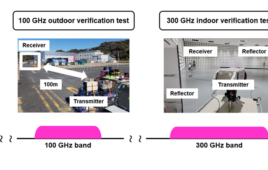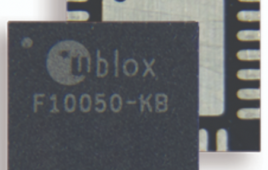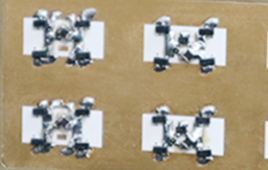Researchers at KAUST have made some notable improvements to an electronic tag called Marine Skin. Built from a thin, lightweight, flexible polymer-based material, the tag monitors the movements and diving behavior of marine animals, and the surrounding conditions of the water, such as temperature and salinity.
.jpg)
(Image Source: © 2019 KAUST; Xavier Pita)
Earlier versions of the design showed promise during tests where they were glued to the back of swimming crabs. Now, researchers can attach the improved Marine Skin noninvasively via a bracelet or jacket, which can protect sensitive skin from adhesives when necessary.
In addition to its safety boost, the tag is now more robust, and can operate at deeper depths.
Ph.D. student Sohail Shaikh of the KAUST team says, “The system can now operate down to a depth of 2 km, which has never been achieved before by anyone.”
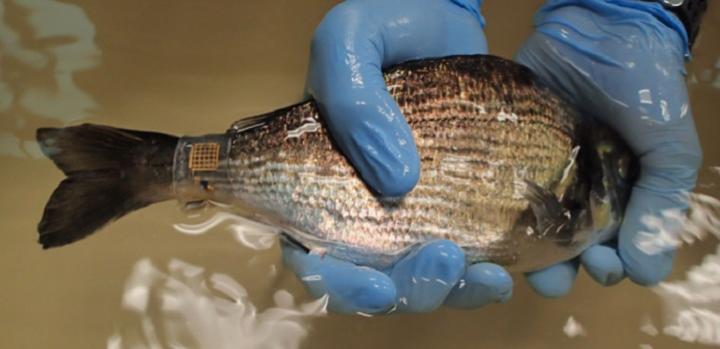
(Image Source: © 2019 KAUST)
The team reports that the new design is 15 times more sensitive than earlier versions, all while being half the size. Trials in the Red Sea proved the device’s integrity through “a full month’s immersion and 10,000 extreme bending cycles,” according to KAUST.
More improvements are in the future for Marine Skin, with the team planning to monitor additional environmental conditions like oxygen and carbon dioxide levels, and precise geolocation tracking.
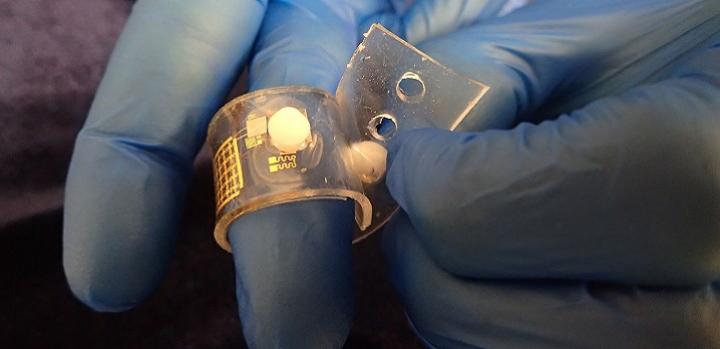
(Image Source: © 2019 KAUST)

